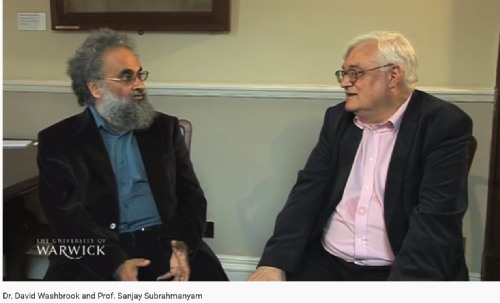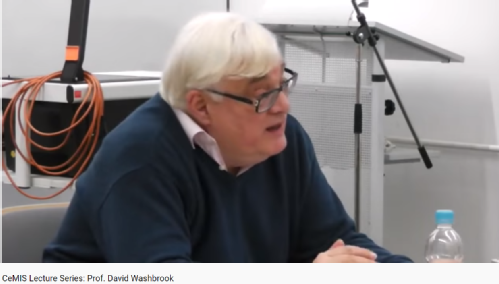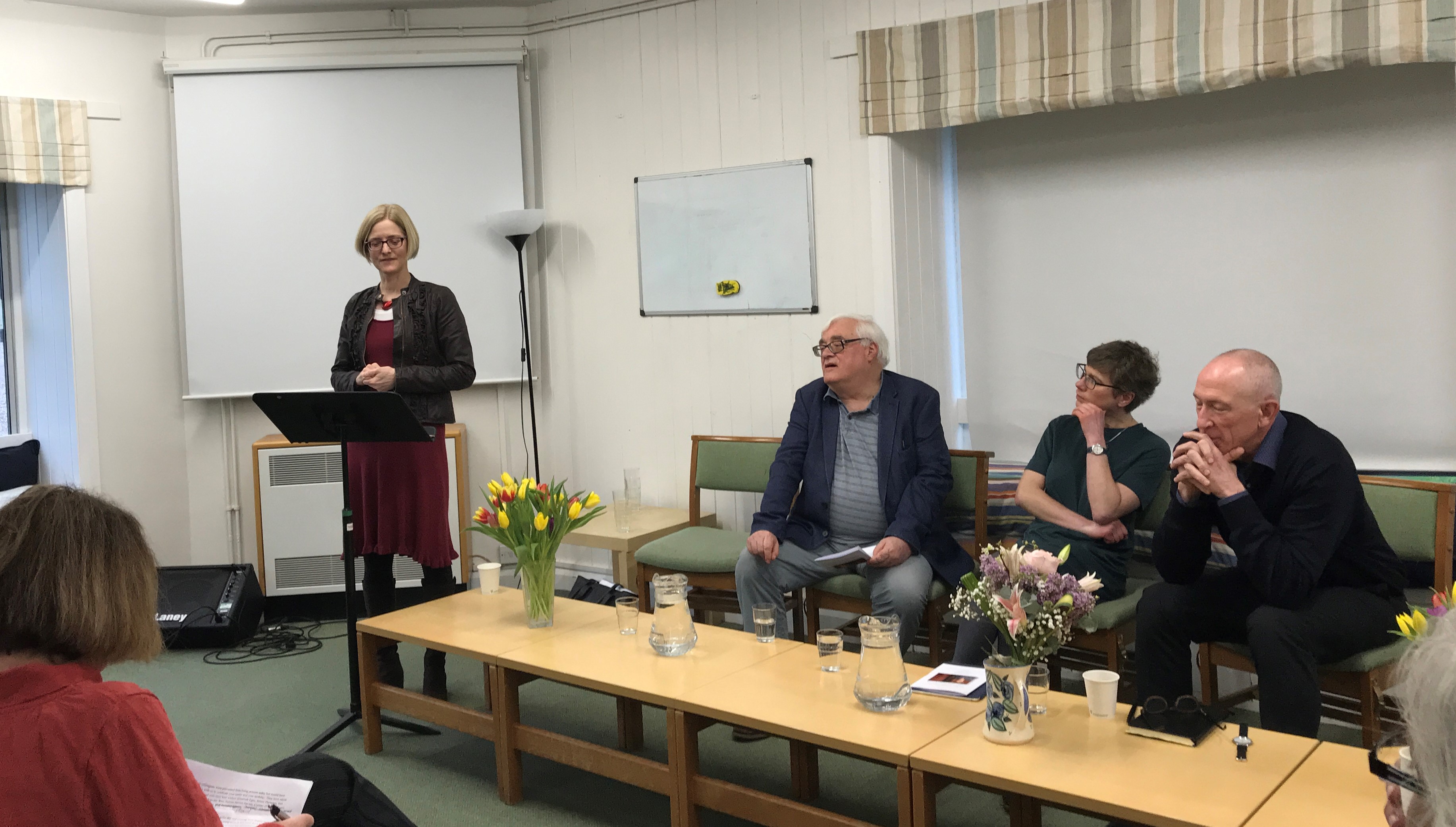David Washbrook (25 April 1948 - 24 January 2021)
It is with great sadness that we have learned that David Washbrook, great historian of India, passed away peacefully at home on Monday, the 24th of January 2021 after a relatively brief illness. David Washbrook joined the Warwick History department in 1974, and taught Indian History, Historiography and wider British and European history until 1992. He was a Visiting Professor at Harvard from 1986 to 1988, and was so well liked he was offered a permanent Chair there, but declined it to return to his Readership at Warwick. But he was soon after to leave Warwick to became Reader in Indian History at Oxford. He remained there until 2008 when he was awarded an Honorary Senior Research Fellowship at Trinity College, Cambridge. He taught regularly until shortly before his death on the MPhil in S. Asian history, and supervised many PhD students. Apart from his early monographs, he was a great essayist, a critical voice in developing new directions in the field, and the key figure in the field in the social and economic history of early modern South India. David joined the debates in global history as these emerged in the later 1990s, and made the history of India both central and accessible within this broad framework of global history. He was a great support in the early years of the Warwick Global History and Culture Centre, serving for several years as Honorary External Advisor and as External Examiner on the MA in Global History. David supervised, formally and informally, many students in the field now teaching in India, the UK and the U.S. His influence on his field has been enormous. He was always generous with his time, welcoming outsiders to his field and introducing them to the country he loved. We will all miss him so very much.
Maxine Berg, January 2021
We also have some reflections on David’s contribution to Indian history from David Washbrook's friend and colleague Professor Prasannan Parthasarathi (Boston College):
David Washbrook began his career as a historian of nineteenth-century South India. In a series of works published in the 1970s, he rethought the politics of that region and rooted them in economic and social conflict. This attention to economic matters was to be a hallmark of his subsequent work, most strikingly evident in his classic essay on law in colonial India, “Law, state, and agrarian society in colonial India,” which appeared in Modern Asian Studies in 1981.
In the 1980s, Washbrook moved back in time to the long eighteenth century in India and in several influential essays contributed along with Christopher Bayly, Frank Perlin, and others to a rethinking of a period that had been largely ignored and dismissed as an interlude between the great Mughal and British Empires. Accompanying this shift to the eighteenth century was a broadening of Washbrook’s ambit from South India to the Indian subcontinent and to the world.
Washbrook was a global historian avant la lettre. In a brilliant essay of 1990, “South Asia, the world system, and world capitalism,” Washbrook critiqued the Eurocentrism of Immanuel Wallerstein’s world systems theory. This essay marked the beginning of a deep engagement with global issues and in particular with the problem of modernity. In a number of articles and book chapters, Washbrook argued that the Indian subcontinent was a key location for global changes often captured in the shorthand term modernity, which made the subcontinent central to the making of the modern world. He also urged his fellow Indianists to think comparatively and to place the Indian past in a larger global frame.
David Washbrook was a great historian but also a great mentor, colleague and friend to many. He will be missed.
Prasannan Parthasarathi, January 2021
Key writings:
“Country Politics: Madras 1880 to 1930,” Modern Asian Studies, 7 (1973), pp. 475-531.
“Law, State and Agrarian Society in Colonial India,” Modern Asian Studies, 15 (1981), pp. 649-721.
“Progress and Problems: South Asian Economic and Social History c.1720-1860,” Modern Asian Studies, 22 (1988), pp. 57-96.
“South Asia, the World System, and World Capitalism,” The Journal of Asian Studies 49 (1990), pp. 479-508.
“From Comparative Sociology to Global History: Britain and India in the Pre-History of Modernity,” Journal of the Economic and Social History of the Orient, 40 (1997), pp. 410-43.
“India in the early modern world economy: modes of production, reproduction and exchange,” Journal of Global History, 2 (2007), pp. 87-111.

David and Sanjay Subrahmanyam (UCLA) in conversation at the 'Writing the History of the Global' Conference at the British Academy in 2009. For the full conversation, see here.


David and others at the workshop 'Why Does Economic History Matter', February 2020
